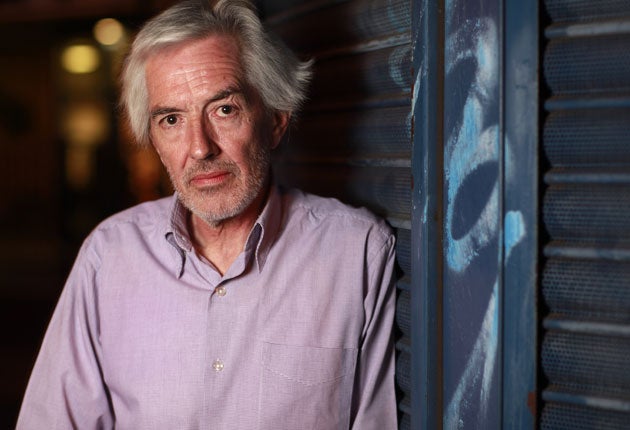Assisted suicide case: 'Ray should have been able to die at home'
Alan Cutkelvin Rees, who helped his partner die in a Swiss clinic, talks to Nina Lakhani in his first interview since charges against him were dropped

Alan Cutkelvin Rees is, technically, a free man. Nearly a year after he was arrested on suspicion of helping his long-term partner to commit suicide, the Crown Prosecution Service has decided not to prosecute. But he is not celebrating. "It has been hell," he said, speaking exclusively to The Independent on Sunday, only hours after hearing the decision.
It lifts a cloud of uncertainty that has hovered over Mr Cutkelvin Rees, 57, since he travelled to the Swiss euthanasia clinic Dignitas with his terminally ill civil partner, Raymond Cutkelvin, in February 2007.
He has been trapped and traumatised by the experience – by the loss of the love of his life, his partner for 28 years, but also by months spent contemplating court and prison as the police and CPS decided on his future.
The past three years have been spent mainly alone, drinking heavily in his east London flat, trying to cope with his grief and with the anger he feels towards the British authorities for not allowing Raymond to die at home. He has suffered from recurring bouts of depression, and thinks often about that day at Dignitas when Raymond, 58, swallowed a cupful of barbiturates to end his life, rather than wait for pancreatic cancer to kill him naturally.
"When we got off the plane in Zurich I couldn't push his wheelchair. I just couldn't do it, push him towards his end. It felt like I was watching a film and it wasn't really us.
"I understood it, I agreed with the principle of it, but I didn't want him to do it, at first anyway. I found it really hard to accept. I still find it hard to accept he's gone. I've drunk heavily to block the whole thing out."
The police arrested him last July, a month after he challenged them to do just that in an interview for a London newspaper. Why did he goad them?
"It was always in my mind that they might come for me one day, and so I wanted them to make a move as it was like a black cloud hanging over me. But also I feel so strongly that Raymond should have been able to die at home or at a clinic here. He was totally sane; it was his decision. So in a way I wanted to be charged and go to court, because I don't think any jury would have found me guilty. That could have helped change the law."
Instead, he has spent a tumultuous year waiting for his day in court that never came. His drinking escalated each time the CPS inexplicably postponed its decision – six times in total.
"It doesn't make sense," said Mr Cutkelvin Rees, originally from Swansea. "Why has it taken the CPS more than six months to decide that it's not in the public interest to charge us? The whole thing has been a bloody nightmare. I feel like I've not been able to grieve for Ray properly."
He has found comfort from his friend, pro-euthanasia campaigner Dr Michael Irwin, who gave the couple £1,500 towards the cost of Dignitas and travelled with them to Zurich. Together they are outspoken about the current two-tier system which means only those with money can travel to Switzerland for help to die.
Despite recent guidance from the Director of Public Prosecutions (DPP), indicating that health professionals who encourage, assist or facilitate suicide would be more harshly considered than patients' friends and relatives, Dr Irwin has not been charged. Pro-life campaigners Care Not Killing last night questioned the decision, which appears contradictory to the DPP guidance.
Mr Cutkelvin Rees is preparing for another battle, as he wants his DNA and fingerprints erased from police records. He needs something to fight for or else there is a risk that he may give up all together.
He has no regrets about helping Raymond to end his life but it was, and still is, complicated and painful for him. "There was always that doubt in my mind about whether it was the right thing to do. I wish we'd stayed together here, but he didn't want me to see him deteriorate. I would have given him the morphine he needed to die, if he'd asked me. I would have done it because I loved him so much. But I'm not as strong as he thought.
"The whole experience, the aftermath, especially with CPS, has been horrendous. Sometimes I get angry with Ray: how dare he put me through all this? I didn't want him to go."
Subscribe to Independent Premium to bookmark this article
Want to bookmark your favourite articles and stories to read or reference later? Start your Independent Premium subscription today.

Join our commenting forum
Join thought-provoking conversations, follow other Independent readers and see their replies